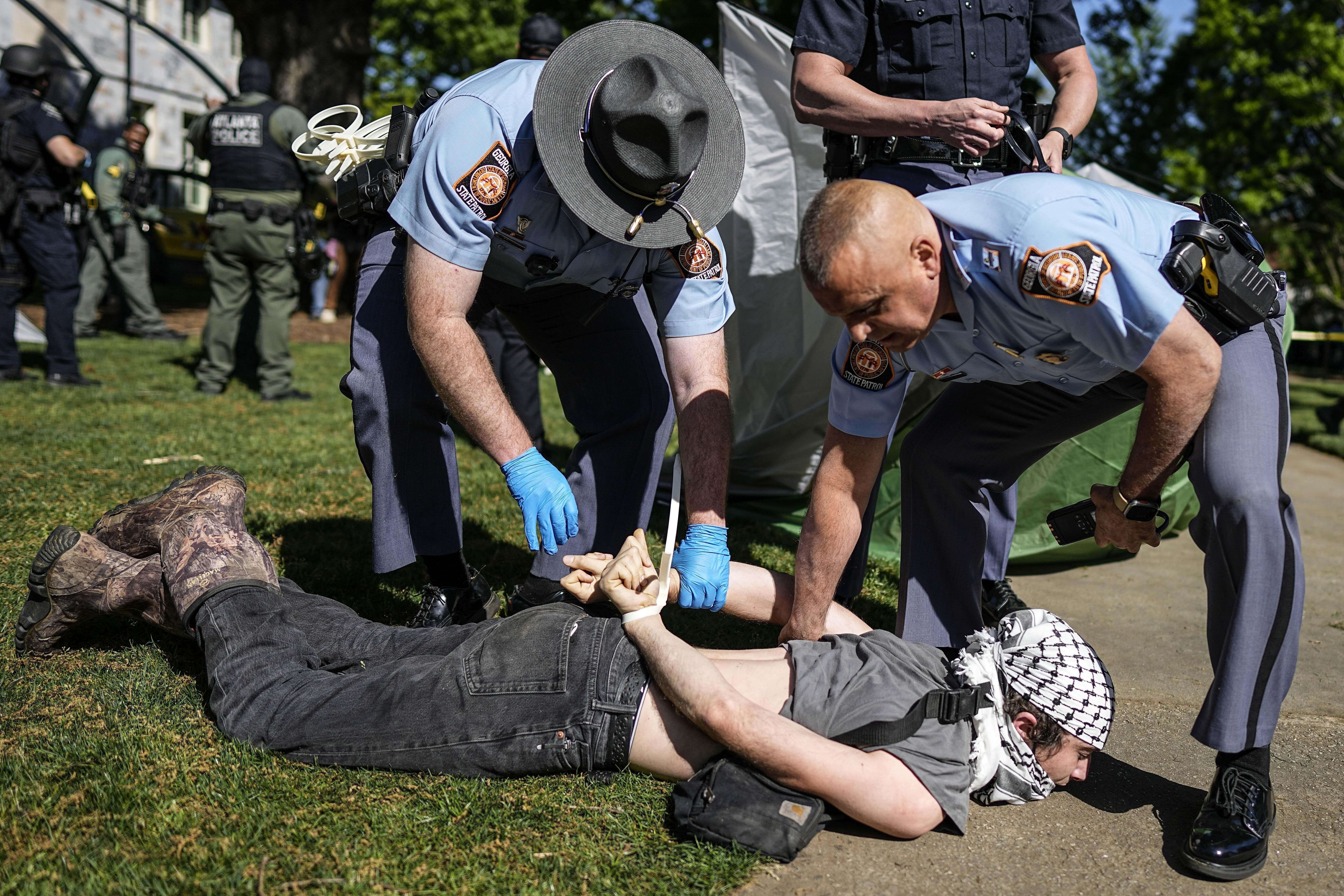American sprinters who were stripped of their 2000 Olympics relay medals because teammate Marion Jones was doping won an appeal Friday to have them restored.
The Court of Arbitration for Sport ruled in favor of the women, who had appealed the International Olympic Committee's decision to disqualify them from the Sydney Games.
The court said the IOC and International Association of Athletics Federations rules in 2000 did not allow entire teams to be disqualified because of doping by one athlete.
The IOC said the ruling was "disappointing and especially unfortunate for the athletes of the other teams who competed according to the rules."
In Sydney, Jearl Miles-Clark, Monique Hennagan, LaTasha Colander Clark and Andrea Anderson were part of the squad that won gold in the 4x400 relay. Chryste Gaines, Torri Edwards, Nanceen Perry and Passion Richardson were on the 4x100 bronze medal squad.
All but Perry joined the appeal.
"The panel found that at the time of the Sydney Olympic Games there was no express IOC or IAAF rule in force that clearly allowed the IOC to annul the relay team results if one team member was found to have committed a doping offense," CAS said.
U.S. & World
Now that the case is over, Richardson can relax, her medal safe and secure in a wooden frame at the home of her parents in Florida.
"It's been a long three years, a long hard fight," Richardson told The Associated Press in a phone interview. "I wanted to believe they would do what was right, but there were some times where I wasn't as certain. Today, they did what was right."
Richardson spoke to Gaines and Miles-Clark and "everyone is extremely excited."
"Finally, the fight is over," Richardson said.
In 2007, Jones admitted she was doping in Sydney and also lost her individual golds in the 100 and 200 meters and bronze in the long jump. She spent about six months in a Texas prison in 2008 for lying about using performance-enhancing drugs and her role in a check-fraud scam.
She has since made a comeback in basketball with the Tulsa Shock of the WNBA.
"I've totally moved on," Jones told The AP on Friday in San Antonio, where the Shock were preparing to play the Silver Stars. "I'm moving forward."
Jones said she had not heard about the CAS decision and had not spoken to her former Olympic teammates recently. She declined further comment.
"She made some very poor choices. That's something she has to live with," said Richardson, who no longer has any ill will toward her former teammate. "We did what we were supposed to do and did it with fairness. You have to learn to forgive and forget."
The CAS panel of three lawyers acknowledged the ruling might be unfair to relay teams that competed "with no doped athletes" but added the decision "exclusively depends on the rules enacted or not enacted by the IOC and the IAAF at the time of the Sydney Olympic Games."
The CAS inflicted a further defeat on the IOC by ordering the Olympic body to pay 10,000 Swiss francs ($9,500) toward the athletes' legal costs.
Mark Levinstein, the Washington, DC-based lead attorney for the athletes, said there is still a lawsuit pending against the USOC.
"All they had to do was say, 'The rules are the rules, leave them alone,' and this didn't happen," Levinstein said in a phone interview. "To have your own national Olympic committee turn its back on you, it was sad."
The USOC issued a statement saying it respects the decision of the CAS.
"Although we continue to believe that the U.S. medals in the 4x100 and 4x400 meter women's relays were unfairly won due to Ms. Jones' doping, we have always recognized that the athletes who made up the U.S. teams might have a legal basis on which to defend these medals," said Patrick Sandusky, chief communications officer for the USOC.
"We are sorry that Ms. Jones' actions continue to have a negative effect on the world of sport and express our sympathy for all of the athletes who competed cleanly at the Olympic Games in Sydney and were damaged by Ms. Jones' poor decisions."



